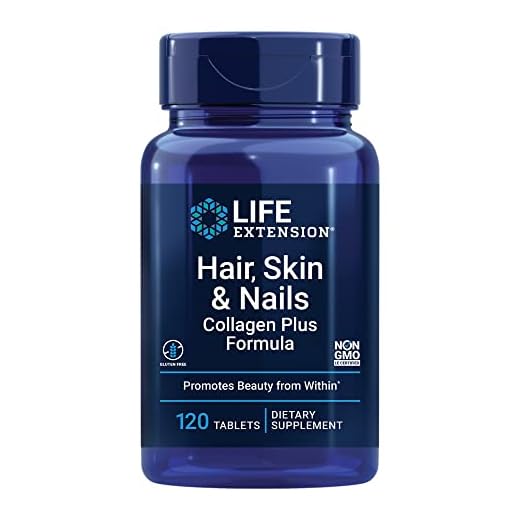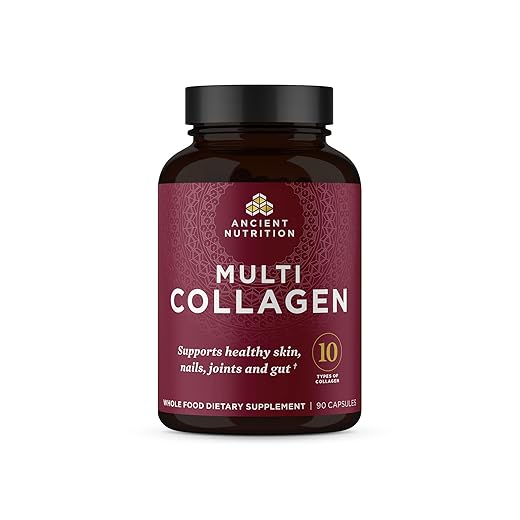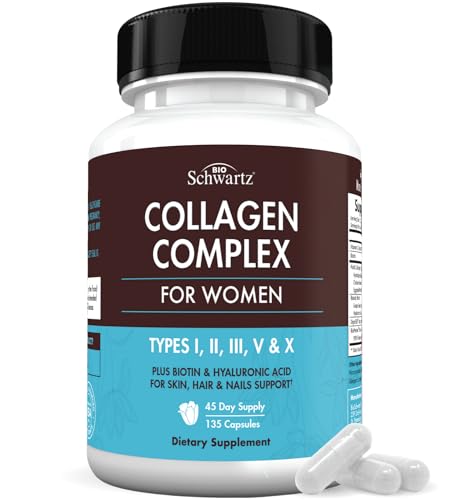Collagen is a crucial protein that helps maintain the skin’s firmness and elasticity. To naturally boost collagen production in the skin, you can follow a few simple steps such as consuming collagen-boosting foods like fruits and vegetables, staying hydrated, protecting your skin from sun damage, and using skincare products with collagen-boosting ingredients like vitamin C and retinol. Increasing collagen production can help improve skin elasticity, reduce wrinkles, and promote a more youthful appearance.
Top Picks for Radiant Skin Renewal



Maintain a Balanced Diet
Incorporate citrus fruits, such as oranges, lemons, and grapefruits, into your daily meals. These fruits are excellent sources of vitamin C, which is crucial for collagen synthesis in the body. Try starting your day with a glass of freshly squeezed orange juice or adding lemon slices to your water for a refreshing boost of vitamin C.
Include a variety of berries, like strawberries, blueberries, and raspberries, in your snacks or meals. Berries are packed with antioxidants that help protect your skin from damage and support collagen production. You can enjoy them on their own, add them to yogurt or oatmeal, or blend them into a smoothie for a tasty and nutritious treat.
Incorporate nuts, such as almonds, walnuts, and cashews, into your diet for a source of amino acids and healthy fats that support collagen formation. Snack on a handful of nuts or sprinkle them over salads or stir-fries to add a satisfying crunch and boost your collagen production. Additionally, include leafy greens like spinach, kale, and Swiss chard in your meals to provide a range of vitamins, minerals, and antioxidants that promote overall skin health and collagen synthesis.
Stay Hydrated
Drink at least 8-10 glasses of water daily to help keep your skin hydrated. Carry a reusable water bottle with you throughout the day to make it easier to stay hydrated. Set a reminder on your phone to take a sip of water every hour to ensure you’re meeting your daily water intake goal.
Examples:
- Start your day by drinking a glass of water before breakfast.
- Keep a water bottle at your desk and take small sips throughout the day.
- Flavor your water with lemon or cucumber slices for a refreshing twist.
- Have a glass of water with each meal to promote hydration.
- Opt for herbal teas or infused water as an alternative to plain water.
Protect Your Skin from Sun Damage
To prevent UV radiation from damaging collagen fibers, start by using sunscreen daily:
- Choose a broad-spectrum sunscreen with SPF 30 or higher.
- Apply sunscreen generously on all exposed skin areas, including face, neck, arms, and legs.
- Reapply every two hours, especially if swimming or sweating.
Next, wear protective clothing to shield your skin:
- Opt for tightly woven clothing with UPF protection.
- Wear wide-brimmed hats to protect your face and neck.
- Use sunglasses with UV protection to safeguard your eyes.
Lastly, seek shade whenever possible to reduce sun exposure:
- Stay under umbrellas or shaded areas during peak sunlight hours.
- Take breaks indoors or under trees during outdoor activities.
- Avoid prolonged sun exposure, particularly between 10 a.m. and 4 p.m.
Incorporate Collagen-Boosting Skincare
- Retinol: Integrate a retinol-based product into your skincare routine to stimulate collagen production and reduce the appearance of wrinkles.
- Peptides: Incorporate peptide-rich serums or creams to boost collagen synthesis, improving skin firmness and elasticity over time.
- Vitamin E: Use skincare products containing vitamin E to protect skin from oxidative stress, helping maintain collagen levels for youthful-looking skin.
Maintain Skin Elasticity with Targeted Ingredients
- Consistent Application: Apply these products regularly and consistently to maximize their collagen-boosting benefits.
- Sun Protection: Combine these skincare products with daily sun protection to shield your skin from UV damage and maintain collagen integrity.
- Hydration: Ensure your skincare routine includes moisturizing products to keep your skin hydrated, supporting collagen production and skin elasticity.
Get Adequate Sleep
Ensure you allocate 7-9 hours each night to sleep adequately. Quality sleep is imperative for allowing your skin time to repair and renew itself. Collagen, a key protein responsible for skin elasticity and strength, regenerates most effectively during deep sleep cycles. By aiming for the recommended 7-9 hours, you provide your body with the ideal conditions for collagen production, resulting in healthier, more youthful-looking skin.
Support Skin Repair Through Adequate Sleep
Commit to a consistent sleep routine to promote skin repair and renewal. Getting enough sleep is essential for the body to carry out repair processes, including the regeneration of collagen. By allowing your body sufficient time to rest each night, you are actively supporting the rejuvenation of your skin cells and ensuring optimal skin health. Make it a priority to get 7-9 hours of uninterrupted sleep to maximize collagen regeneration and promote a rejuvenated appearance.
Key Takeaways for Glowing Skin
In conclusion, implementing these natural ways to boost collagen production can help improve skin health, combat aging signs, and keep your skin looking youthful.
Essential Supplies
Boosting Skin Elasticity
Tips for Boosting Collagen Production for Healthy Skin
- Take one capsule of Healthy skin collagen daily with a glass of water
- Ensure you are well-hydrated throughout the day to support collagen production
- Incorporate foods rich in Vitamin C, such as citrus fruits and berries, to enhance collagen absorption
- Avoid excessive sun exposure and use sunscreen to protect your skin and maintain collagen levels
Collagen FAQ
How does sun exposure affect collagen levels in the skin?
Sun exposure can lead to a decrease in collagen levels in the skin. The ultraviolet (UV) rays from the sun can break down collagen fibers, which are responsible for keeping the skin firm and elastic. This breakdown of collagen can result in wrinkles, sagging skin, and a loss of skin elasticity over time. It is important to protect your skin from sun exposure by using sunscreen and wearing protective clothing to help maintain collagen levels and keep your skin healthy.
How can lifestyle factors like stress and sleep impact collagen levels in the skin?
Lifestyle factors like stress and lack of sleep can impact collagen levels in the skin negatively. Chronic stress can lead to increased production of cortisol, which can break down collagen and result in decreased collagen levels in the skin. Additionally, inadequate sleep disrupts the body’s natural repair processes, including collagen production, leading to reduced collagen levels and potentially premature aging of the skin. Prioritizing stress management techniques and ensuring adequate sleep can help maintain healthy collagen levels in the skin.
What are the differences between collagen types and how do they impact skin health?
There are different types of collagen in the human body, with the most common types found in the skin being type I, type II, and type III.
- Type I collagen is the most abundant and provides structure and support to the skin. It helps maintain skin elasticity and firmness.
- Type II collagen is mainly found in cartilage and is important for joint health rather than skin health.
- Type III collagen is often found alongside type I collagen and helps support the skin’s structure and firmness.
What are some natural ways to promote collagen production in the skin?
Some natural ways to promote collagen production in the skin include:
- Eating a diet rich in vitamin C: Foods like citrus fruits, berries, and leafy greens are high in vitamin C, which is essential for collagen synthesis.
- Consuming foods with antioxidants: Antioxidants help protect the skin from damage that can break down collagen. Foods like green tea, dark chocolate, and nuts are good sources of antioxidants.
- Getting enough sleep: Adequate sleep is important for overall skin health, including collagen production and repair.
- Avoiding excessive sun exposure: UV rays can damage collagen fibers, so using sunscreen and seeking shade can help preserve collagen in the skin.
- Using skincare products with retinoids: Retinoids can boost collagen production and increase skin cell turnover when applied topically.
- Regularly exercising: Exercise can improve blood flow and circulation, which helps deliver nutrients to the skin and support collagen production.
Is collagen loss reversible, and if so, what are the best methods to restore collagen in the skin?
Collagen loss is not reversible, as the body’s ability to produce collagen decreases with age. However, there are methods to help stimulate collagen production in the skin. Some effective ways to restore collagen in the skin include using collagen-boosting skincare products containing ingredients like retinol, vitamin C, peptides, and hyaluronic acid. In-office treatments such as laser therapy, microneedling, and chemical peels can also help stimulate collagen production. Additionally, maintaining a healthy diet rich in antioxidants and staying hydrated can support overall skin health and collagen production.
Can collagen supplements improve skin health?
Collagen supplements have been shown to potentially improve skin health by increasing skin elasticity and hydration. However, scientific research on the effectiveness of collagen supplements for skin health is still limited and more studies are needed to fully understand the benefits and potential side effects. It’s always best to consult with a healthcare professional before starting any new supplement regimen.
Are there any skincare products that are particularly effective at boosting collagen in the skin?
Yes, there are several skincare products that are known to be effective at boosting collagen in the skin. Some ingredients to look for in skincare products that can help stimulate collagen production include retinoids (such as retinol), vitamin C, peptides, and growth factors. These ingredients can help improve skin elasticity, firmness, and overall collagen production, resulting in a more youthful appearance. It is always recommended to consult with a dermatologist or skincare professional to determine the best products for your specific skin concerns.
What are the signs of collagen depletion in the skin?
Some signs of collagen depletion in the skin include increased appearance of wrinkles and fine lines, sagging or loss of firmness, dryness and rough texture, and overall reduced skin elasticity. Collagen depletion can lead to a decrease in skin volume and thickness, resulting in a more aged and less vibrant appearance.





Leave a Reply